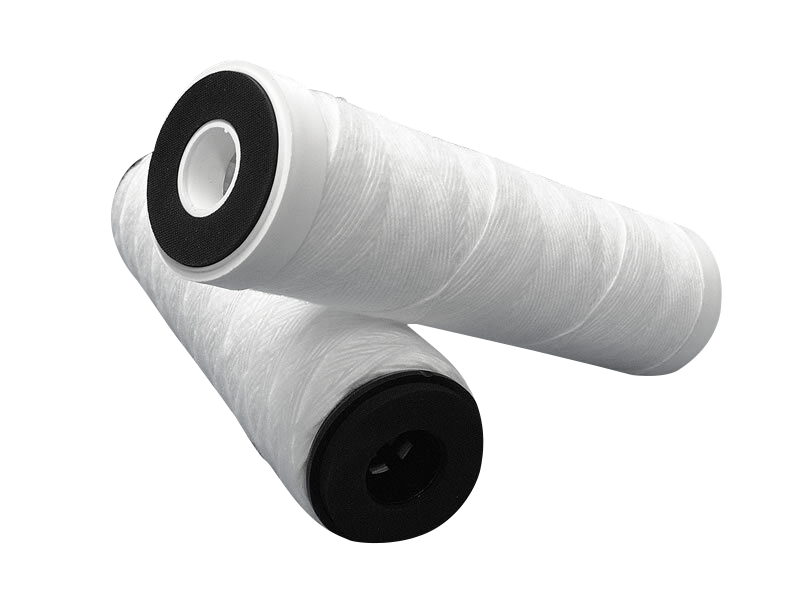Tackling Boiler and Steam Condensate Applications
Boilers and steam systems are central to many industries, and managing condensate quality is key to keeping them efficient and reliable. While condensate looks like “clean water,” it often contains corrosion products, suspended solids, and even process contamination. Left unchecked, these contaminants can foul condensate polishers, reduce boiler efficiency, and cause costly downtime.
Why Filter Boiler Condensate?
Even though condensate is often considered “clean water,” in reality it can pick up impurities at several points in the system:
- Corrosion products: Iron oxides (magnetite, hematite, rust) released from boiler tubes, steam lines, or heat exchangers.
- Copper and other metals: From condensers, pipework, or equipment.
- Particulate matter: Dirt, suspended solids, and wear particles that enter through leaks or mechanical equipment.
- Process contamination: In chemical, petrochemical, or refinery environments, hydrocarbon ingress is also a risk.
If these contaminants are not removed, they can:
- Damage ion exchange resins in the condensate polisher.
- Increase boiler tube fouling and scaling.
- Reduce heat transfer efficiency.
- Increase maintenance and unplanned downtime.
Cartridge Filters vs. Alternative Filtration Methods
Boiler houses often use a combination of filtration technologies:
- Strainers or bag filters: Provide bulk removal of large debris.
- Cartridge filters: Deliver fine, consistent particle removal down to sub-micron levels.
Cartridge filters provide the best protection of expensive downstream polishing equipment and ensuring the condensate is consistently clean, but often, if budgets allow, the two technologies can work in tandem when systems are particularly contaminated.
Key Considerations When Selecting Cartridge Filters for Condensate
-
Operating Temperature and Pressure
- Ensure filter media and hardware are rated for the condensate conditions.
- Stainless steel or specially engineered polymer cartridges may be required.
-
Micron Rating
- Typical ranges: 1–25 µm.
- Choice depends on whether the focus is protecting polishers (finer ratings) or removing general corrosion products (coarser ratings).
-
Flow Rate and Pressure Drop
- Boiler houses demand continuous, reliable flow.
- Pleated cartridges offer high surface area to minimise pressure losses.
-
Chemical Compatibility
- Check compatibility with oxygen scavengers, neutralising amines, or other boiler treatment chemicals present in the condensate.
-
Filter Changeout Strategy
- Use pressure differential monitoring to optimise filter life.
- Plan around plant maintenance schedules to minimise downtime.
Cartridge filters are one of the most effective tools to keep condensate clean. Let’s look at how different industries use them and why their role is so important.
-
Power Generation – Protecting Condensate Polishers
Challenge:
In fossil fuel and nuclear power plants, condensate is reused at very high volumes and pressures. Corrosion products such as iron oxides (magnetite, rust) are common, and if they reach the condensate polisher, they can foul ion exchange resins and shorten run lengths.
Solution with Cartridge Filters:
- Absolute-rated pleated filters (1–5 µm) are installed upstream of the condensate polisher.

- These filters capture fine iron oxides and suspended particles before they reach the resin beds.
- High-temperature cartridge options
– st.st 316 – withstand return condensate conditions above 90–100 °C.
Benefit:
By stopping particulates before the polisher, plants extend resin life, reduce regeneration frequency, and improve boiler feedwater purity — critical for turbine protection and efficiency.
-
Refining & Petrochemicals – Managing Hydrocarbon Ingress
Challenge:
In refinery steam systems, leaks in heat exchangers can allow hydrocarbons to enter the condensate return. Even small amounts of oil or organic contamination can foul polishers and affect downstream steam purity.
Solution with Cartridge Filters:
- Depth filters (5–10 µm) are used for bulk removal of particulates and dispersed oils.
- In some cases, adsorptive filter media (activated carbon or specialty polymers) can be installed in cartridge housings to capture hydrocarbons.
Benefit:
Pre-filtration reduces the risk of contamination reaching polishers or boilers, maintaining reliability in critical refinery operations.
-
Food & Beverage – Safeguarding Steam Purity
Challenge:
In breweries, dairies, and food factories, steam is often used in direct contact with the product. This makes condensate purity even more important, as any contamination can lead to product spoilage or quality issues.
Solution with Cartridge Filters:
- Polyproplene pleated depth cartridges with absolute ratings down to 1 µm ensure that particulates and corrosion products are removed consistently.
- Cartridges must also be food-grade compliant and resistant to cleaning chemicals used in CIP (clean-in-place) cycles.
Benefit:
Food and beverage producers maintain high steam purity, avoid product contamination, and extend the service life of polishers and boilers.
-
District Heating & Building Services – Reliability at Scale
Challenge:
Large-scale heating systems in cities and industrial campuses rely on boilers and steam networks where condensate quality directly impacts operating costs. Corrosion in return lines is a common issue, leading to iron particle build-up.
Solution with Cartridge Filters:
- Depth filters (5–20 µm) provide economical, broad-spectrum particle removal.
- Systems often use staged filtration: a strainer or bag filter for bulk solids, followed by cartridge filters for finer removal.
Benefit:
Consistent condensate quality reduces scaling and tube fouling, minimises unscheduled maintenance, and ensures reliable heating supply.
-
Pharmaceuticals – Ultra-Pure Condensate for Critical Steam
Challenge:
Pharmaceutical manufacturing often uses clean steam in processes where product sterility and purity are non-negotiable. Any particulate or chemical contamination in the condensate loop can compromise compliance.
Solution with Cartridge Filters:
- Polypropylene pleated depth cartridges with sub-micron ratings (0.5–1 µm absolute).
- Cartridges designed with low extractables and pharma-grade validation.
- Materials must be fully compatible with sanitisation processes (steam sterilisation, hot water).
Benefit:
Ensures condensate is free of particulates, protects steam quality, and supports regulatory compliance in sterile manufacturing environments.
Summary
While the principle of using cartridge filters in condensate applications is consistent across industries, the specific requirements vary:
- Power plants need fine, high-temperature filtration to protect polishers.
- Refineries need hydrocarbon-resistant and adsorptive options.
- Food & beverage requires food-grade, absolute-rated filters.
- District heating benefits from cost-effective depth filtration.
- Pharma demands the highest purity and regulatory-compliant cartridges.
In every case, cartridge filters act as the frontline defence in condensate treatment, extending the life of downstream equipment, improving boiler efficiency, and reducing operating costs.
If you have any questions about your condensate application or need filters for your operating systems, then you can give us a call or send us an email - we’d be more than happy to help.
You can also read more in our blogs:
- Guide to Selecting the Right Micron Rating
- Understanding Water Condensation in Compressed Air Systems
PoreFiltration – Making your filtration systems work harder





